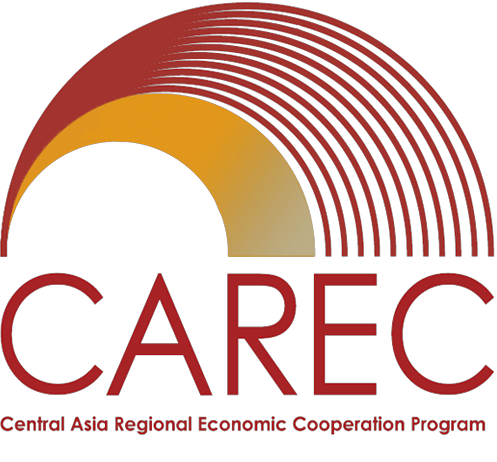CAREC Timeline

1996
1996
Technical assistance to promote regional economic cooperation in Central Asia is approved

1997
1997
Regional technical assistance for Central Asia supports projects that increase trade and cooperation between Xinjiang Uygur Autonomous Region of the People’s Republic of China (PRC), Kazakhstan, the Kyrgyz Republic, and Uzbekistan

1998
Tajikistan joins CAREC
1998
2000
2000
The CAREC Secretariat is established at the Asian Development Bank
2001
2001
In 2001, six CAREC-related projects were approved with a combined value of $247 million

2002
2002
First Ministerial Conference reaches consensus for a flexible, practical approach within a results-oriented institutional framework. Customs Cooperation Committee was established

2003
2003
Six multilateral institutions commit to the program
Azerbaijan and Mongolia join CAREC

2004
Transport and trade policy coordinating committees are established. The private sector is encouraged to take part in the program
2004

2005
Afghanistan joins CAREC
The Energy Sector Coordinating Committee is formed
2005

2006
Comprehensive Action Plan
The First Business Development Forum sees business leaders and policy makers find ways to reduce impediments to regional cooperation
2006
The First Business Development Forum sees business leaders and policy makers find ways to reduce impediments to regional cooperation

2007
Ministers endorse the Transport and Trade Facilitation Strategy
The CAREC Institute Prospectus creates a mechanism to address “second-tier” issues of communicable disease control, environmental protection, business development, capacity–building initiatives, and research
2007

2008
Inner Mongolia Autonomous Region of the PRC is brought into the partnership The Trade Policy Strategic Action Plan is endorsed to help liberalize trade regimes and get member countries into the WTO The Strategy for Regional Cooperation in the Energy Sector breaks ground as the first energy plan among Central Asian nations
2008

2009
Ministers endorse the Energy Action Plan Framework and CAREC’s results focus
Private companies establish the CAREC Federation of Carrier and Forwarding Associations and start sharing crossborder movement data as the CAREC Corridors Performance Measurement and Monitoring Program is launched
2009

2010
Pakistan and Turkmenistan join CAREC
The Development Effectiveness Review is launched to monitor CAREC’s performance process
2010

2011
Ministers endorse the CAREC 2020, the strategic framework for expanding trade and improving global competitiveness
2011

2012
68 projects worth $23 billion are prioritized to complete the six CAREC transport corridors
CAREC partners set a practical, results-oriented, and corridor-based approach to cross-border transport
2012

2013
Ministers approve a refined strategy for transport and trade facilitation to integrate multimodal transport, improved logistics, more links to gateway ports, and better services at border crossings
Action plan for transport and trade facilitation comprises 108 investment projects worth $38.8 billion
Ministers approve Trade Policy Strategic Action Plan 2013-2017
2013

2014
Kazakhstan and the Kyrgyz Republic sign the Almaty–Bishkek Corridor Initiative to kickstart CAREC’s economic corridor development drive
Transport Sector Workplan 2014–2016 is formulated with country- and subregion-specific targets
2014

2015
CAREC Institute’s physical base is launched in Urumqi, Xinjiang Uygur Autonomous Region, PRC
Georgia participates as an observer in the 14th Ministerial Conference
2015

2016
Georgia becomes the 11th member of CAREC
Ministers endorse Mid-Term Review of CAREC 2020, Railway Strategy 2017–2030, and Regional Road Safety Strategy 2017–2030
2016

2017
As of end September 2017, $30.5 billion in investments have gone into 182 CAREC-related projects
Ministers endorse CAREC 2030, a new framework to guide CAREC to better connect people, policies and projects as an open and inclusive platform
CAREC Institute obtains its legal status
2017

2018
2018
Ministers endorse CAREC Integrated Trade Agenda 2030 and its Rolling Strategic Action Plan 2018-2020 to further integrate CAREC countries with the global economy through trade expansion, greater diversification and stronger institutions for trade.
ADB and Turkmenistan sign a $500 million loan to improve Turkmenistan’s transmission network and power supply and increase its electricity exports to the region.

2019
Ministers endorse the CAREC Transport Strategy 2030 and CAREC Energy Strategy 2030
CAREC gathers Energy ministers in their first regional dialogue, where they agreed to double renewable energy and energy efficiency levels
2019

2020
2020
Ministers endorse the CAREC Program, Results Framework, CAREC Tourism Strategy 2030, and the CAREC Gender Strategy 2030

2021
Ministers endorse new policy roadmaps for promoting digitization and health security in the region, such as the CAREC Health Strategy 2030 and the CAREC Digital Strategy 2030
2021

2022
Ministers endorse three stategic documents: the CAREC Post-Pandemic Framework for Green, Sustainable, Inclusive Recovery; Cooperation Framework for Agricultural Development and Food Security in the CAREC Region; and the CAREC Green Energy Alliance
They also considered how to support regional actions to address climate change under the CAREC Program
2022

2023
CAREC Climate Change Vision was endorsed
